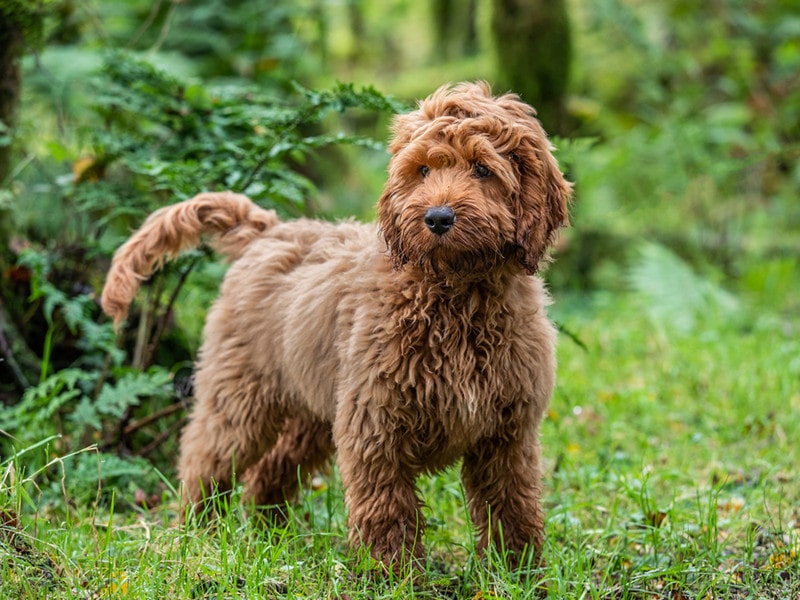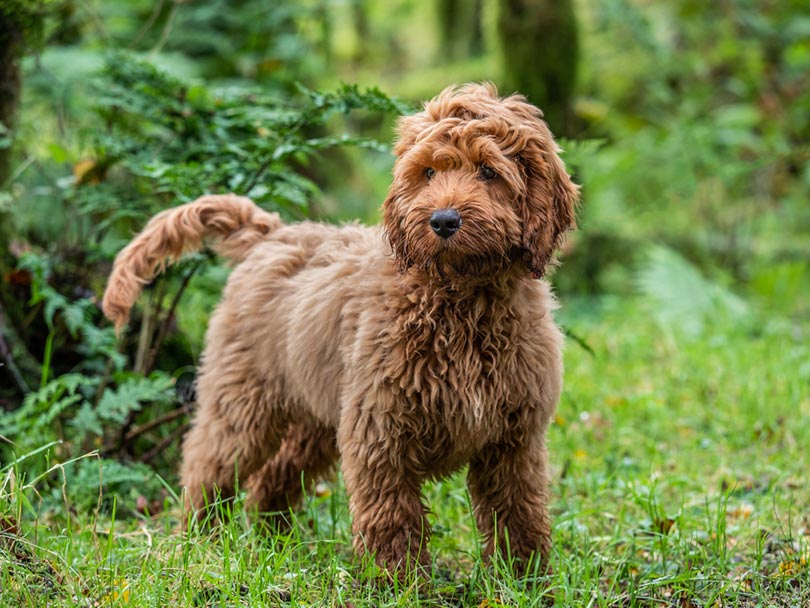Can Dogs Eat Smoked Salmon? Vet Approved Facts & FAQ
Updated on
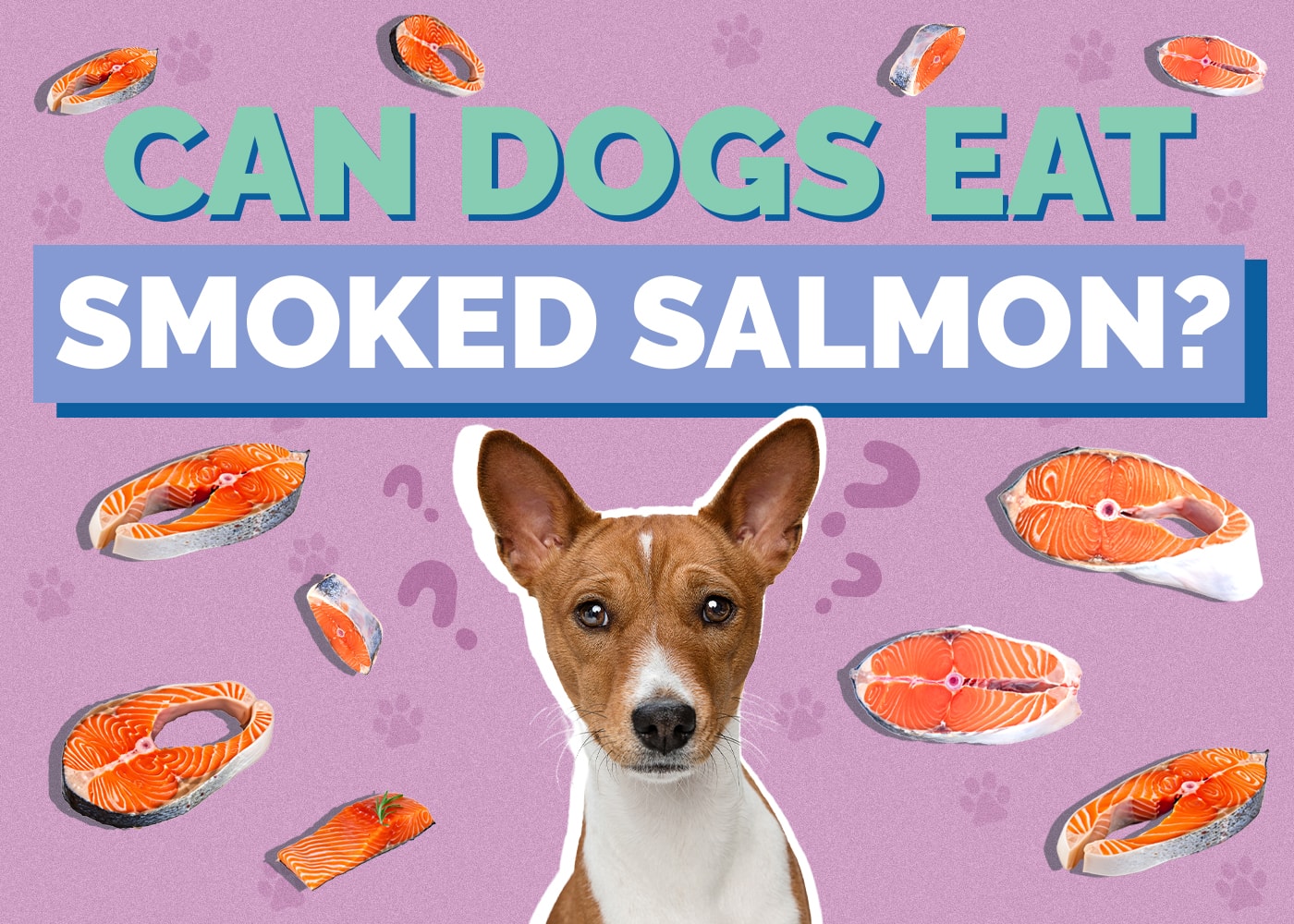
Our pups are as curious as other pets. They are always looking to explore new things to keep themselves busy and happy. This also applies to trying new foods. If you’re a pet parent, you’d know how hard it is to resist those adorable eyes of your dog when they’re asking for a bite.
However, there are some foods you should never really give to your dog, including smoked salmon.1 That’s because it contains lots of sodium that can cause issues in your pet, as well as high levels of fat, and other concerns. But you can still feed cooked and boneless fish to your furry friend.
As a responsible pet owner, you must know what to give your dog and what you shouldn’t. It’s essential to keep your pet happy and healthy for a long time. So, let’s dig deeper into this topic to discover why you shouldn’t give smoked salmon to your pet and what’s the right way to feed fish to them.
Why Shouldn’t a Dog Eat Smoked Salmon?
Smoked salmon is rich in omega-3 fatty acids, which relieve inflammation and preserve brain health in humans, not to forget its delicious taste. Unfortunately, you really shouldn’t feed it to your dog. Although fish benefits pets’ health, many experts prevent owners from feeding their dogs smoked salmon. Why is that so?
The Dogs Naturally Magazine says that smoked salmon isn’t healthy for your dog as it’s cured and contains lots of salt.2 Excessive salt quantity isn’t recommended for a human’s diet, so how will it be okay for your dog?
So, should your dog’s diet be free from salt? No, salt is essential for every living organism’s daily functions. However, the problem is with its quantity. If your dog consumes too much salt, it can become vulnerable to dehydration, sodium poisoning, and many other diseases. Further, the high fat content can lead to pancreatitis, and uncooked salmon is a potential risk for parasitic diseases.
You can still include salmon in your dog’s diet if it is cooked correctly. According to The American Kennel Club (AKC)2, salmon is incredibly beneficial for your dog’s immune system. Its omega-3 fatty acids reduce inflammation and improve the health of your dog’s coat, making it look shiny. Salmon is also a great source of protein.
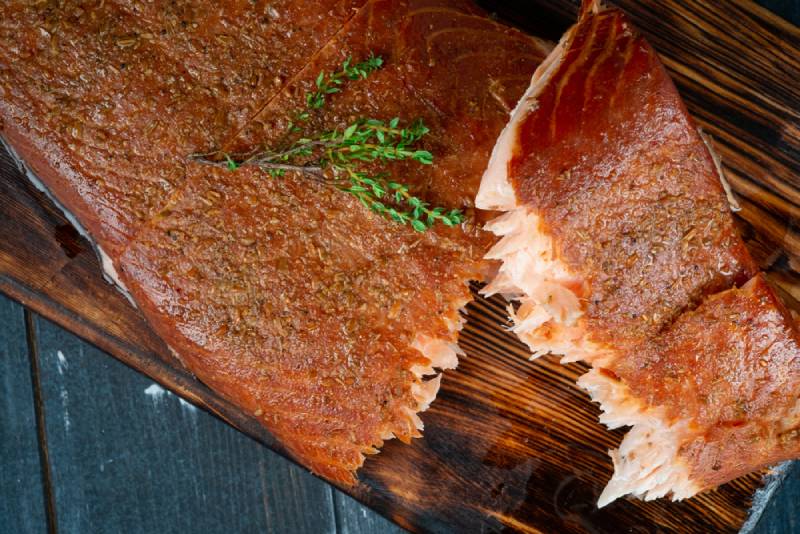
Is Raw Salmon Safe for Dogs?
Nowadays, you may have observed pet owners switching to raw dog foods instead of commercial ones. While some do it to achieve a natural diet for their pet, others tend to follow the trend.
But is raw salmon safe for your dog? Unfortunately, it is not. The AKC advises against pet owners feeding raw or undercooked salmon to domestic dogs. The food contains a parasite—Neorickettsia helminthoeca—that leads to salmon poisoning. This condition can even be lethal for your dog. Bacteria and other parasites are also concerns.
Can Dogs Have Dehydrated Salmon?
Many dog food commercials advertise dehydrated salmon as a healthy treat for dogs. Dehydrated salmon are those whose skin is dried out, hard, and chewy. Thus, they serve as a delightful treat for your dog.
You will find many bone-shaped dehydrated salmon products in the market. They all claim to be healthy for your dog’s health, serving as an ideal chew alternative to rawhide. Unfortunately, rawhide can lead to many health issues, including digestive problems, intestinal blockage, contamination, etc.
Fortunately, dehydrated salmon skin is super digestible. But you should know that skin is a fish’s fattiest part. While fat is healthy for your dog, fat tissues are the storage places for toxins and contaminants. And again, carry a risk of pancreatitis if ingested in large amounts.
Many experts believe dogs don’t get many nutrients from dehydrated salmon since skin only contains negligible nutrients. As a result, your dog gets more risks than benefits. So, it’s better to remove the dry salmon’s skin when feeding it to your dog.
Is Canned Salmon Healthy for Your Dog?
Canned salmon is a safe and convenient way to include fish in your dog’s diet in limited quantities. Since the food is already cooked, your dog can eat it immediately. Not only is canned salmon beneficial for your pet, but it also adds a unique flavor to their regular food.
However, experts believe canned salmon contains less fatty acids and high cholesterol. So, while it is not the healthiest choice, it is an easy way to include essential nutrients in your dog’s diet.
Don’t choose those containing oil or brine when shopping for canned salmon. Instead, opt for those products that are packed with spring water.
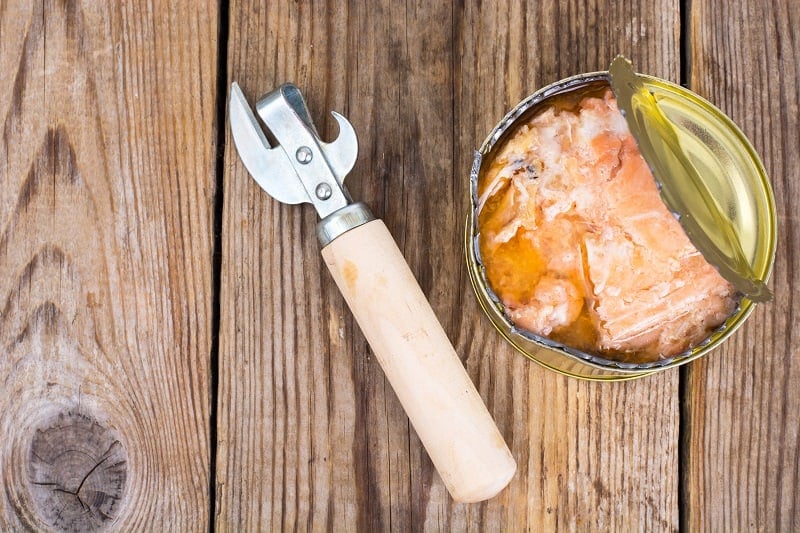
Is Salmon Beneficial for Your Dog?
You may have concluded that salmon is healthy for your dog. It is just the raw, smoked form of fish that’s not ideal. In fact, salmon is a primary ingredient in many quality dog foods and treats. While these products are expensive, they potentially offer more nutrients to your pet than those with chicken or other protein sources.
- Contains lots of beneficial omega-3 fatty acids that strengthen the pet’s immune system, decreases inflammation, and improves their coat health
- Consists of a high protein content
- Potentially decreases inflammation
- Supports brain function
You can only get these benefits when feeding well-cooked salmon to your pet. Never give raw or smoked salmon to your furry friend.
Tips to Prepare Salmon for Your Pet
Now that you know the risks of treating your pet with raw fish, it’s time to learn how to prepare salmon for your furry friend correctly.
- Ensure you’re feeding your dog boneless filets.
- Always cook salmon properly. You can steam, poach, grill, roast, or bake the filets.
- Don’t add seasonings such as onions, salt, pepper, or oil.
- Focus on portion control considering your dog’s size.
- Use salmon sparingly as a treat, on rare occasions only
Conclusion
Raw salmon isn’t healthy for your dog. However, you can feed your dog cooked and canned smoked salmon products since they aren’t raw.
Eating cured fish, raw meat, and dehydrated salmon skin is potentially associated with a number of health issues and best avoided. So, if you want to include salmon or any other type of fish in your dog’s diet, consult a vet before to make the most informed decision.



